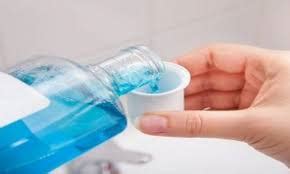Mouthwash Best Practices

When it comes to oral health, mouthwash is often considered a valuable addition to the daily routine, offering a layer of protection and cleanliness that brushing and flossing alone may not provide. However, to maximize its benefits and ensure safety, it’s crucial to understand and follow best practices for using mouthwash. This includes selecting the right type of mouthwash for your specific oral health needs, using it correctly, and being aware of its limitations and potential interactions with other health conditions or medications.
Choosing the Right Mouthwash
The first step in effectively incorporating mouthwash into your oral hygiene routine is choosing a product that meets your needs. Mouthwashes are available over-the-counter (OTC) and by prescription, each designed to address different aspects of oral health, such as plaque control, gingivitis prevention, sensitivity relief, and fresh breath. For individuals with specific dental concerns, such as cavities or gum disease, a mouthwash containing fluoride can help strengthen tooth enamel and make teeth more resistant to decay. Others might prefer a mouthwash that is antibacterial, helping to reduce plaque and prevent or reduce gingivitis.
For those seeking a more natural approach, there are mouthwashes that use essential oils and other natural ingredients. However, it’s essential to read labels carefully and look for the American Dental Association (ADA) Seal of Acceptance, which indicates that the product has met certain standards for safety and effectiveness.
Using Mouthwash Correctly
Once you’ve selected an appropriate mouthwash, the next step is using it correctly. Typically, mouthwash is used after brushing and flossing. Swish the recommended amount (usually 2-3 teaspoons or 10-15 milliliters) around your mouth for 30 seconds to 1 minute. Make sure to swish the mouthwash between your teeth and around your gums, then spit it out. Do not swallow mouthwash, as it can contain alcohol and other ingredients that are not meant to be ingested.
It’s also important to note the frequency of use. For most mouthwashes, using them twice a day is sufficient. However, some prescription mouthwashes may have different usage instructions, so it’s crucial to follow the advice of your dentist or the product’s directions.
Mouthwash for Specific Needs
Different oral health conditions may require specialized mouthwashes. For example:
- For Gingivitis and Plaque Control: Antibacterial mouthwashes can help reduce gingivitis and plaque, which are key factors in gum disease.
- For Tooth Sensitivity: Desensitizing mouthwashes can help alleviate tooth sensitivity by blocking the dentinal tubules in the teeth.
- For Bad Breath (Halitosis): Antibacterial mouthwashes can help kill bacteria that cause bad breath.
Considerations and Limitations
While mouthwash can be a valuable tool for maintaining good oral health, it’s not a substitute for regular brushing and flossing. Moreover, mouthwash should not be used as a replacement for professional dental cleanings and check-ups. Regular visits to the dentist are crucial for removing tartar, detecting oral health issues early, and receiving personalized advice on oral care.
Additionally, individuals with certain health conditions, such as dry mouth, or those taking certain medications, should consult with their dentist before starting a new mouthwash regimen. Some mouthwashes can exacerbate dry mouth or interact with medications.
Common Misconceptions
There are several misconceptions about mouthwash that are worth clarifying:
- Alcohol Content: Some people believe that all mouthwashes contain alcohol, which can be harmful to oral tissues and increase the risk of oral cancer. However, there are many alcohol-free options available.
- Effectiveness: Another misconception is that mouthwash is not effective unless it burns or stings. This sensation is often due to the alcohol content and is not a measure of the mouthwash’s effectiveness.
Future Trends in Mouthwash
The development of mouthwash is evolving, with trends towards more natural ingredients, reduced alcohol content, and targeted formulations for specific oral health needs. There is also a growing interest in mouthwashes that can help with conditions beyond traditional oral health, such as gum recession and oral health-related systemic diseases.
Conclusion
Incorporating mouthwash into your daily oral hygiene routine can provide additional protection against a range of oral health issues. However, it’s essential to choose the right type of mouthwash for your needs, use it correctly, and be aware of its limitations. By doing so, you can maximize the benefits of mouthwash and maintain a healthier, happier smile.
Can I use mouthwash if I have sensitive teeth or gums?
+Yes, there are mouthwashes specifically designed for individuals with sensitive teeth or gums. Look for products labeled as "desensitizing" or "for sensitive teeth and gums." These mouthwashes are formulated to help reduce sensitivity while still providing protection against plaque, gingivitis, and bad breath.
Do I need to use mouthwash if I brush and floss regularly?
+Using mouthwash in addition to brushing and flossing can provide extra protection against oral health issues. Mouthwash can reach areas that a toothbrush and floss might miss, such as the back sides of molars, and can help reduce bacteria and freshen breath. However, it's not a substitute for brushing and flossing, which are essential for removing plaque and food particles.
Can children use mouthwash?
+Children can use mouthwash, but it's crucial to supervise them and choose a mouthwash that is appropriate for their age. For children under the age of 6, it's generally recommended to consult with a dentist before using mouthwash, as they may swallow it. For children over 6, look for mouthwashes that carry the ADA Seal of Acceptance and follow the instructions carefully to ensure safe use.
In summary, mouthwash can be a powerful tool in the fight against oral health issues, but its effectiveness depends on choosing the right product for your needs and using it correctly. By understanding how to select and use mouthwash, individuals can enhance their oral hygiene routine, prevent a range of oral health problems, and maintain a healthy, confident smile.

